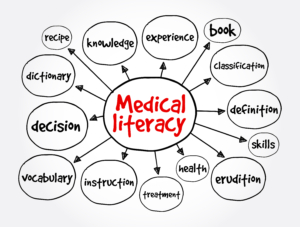Insurance can be a complex topic, especially for aging adults and their families. Navigating the ins and outs of insurance policies and benefits is crucial to avoid costly mistakes and ensure you get all the benefits you are entitled to. In this blog post, we’ll explore five common insurance mistakes that seniors often make and provide helpful advice to steer clear of these pitfalls. This information is also helpful to those adult children helping to manage the cares of their aging parents.
Importance of Understanding Insurance for Seniors
For seniors, insurance isn’t just about health coverage—it’s a lifeline that ensures quality care, financial stability, and peace of mind. Yet, navigating all of the options and understanding policy details and the insurance language can be intimidating. To help, we’ve shared five common mistakes and some optional solutions for avoiding them.
5 Common Insurance Mistakes Seniors Make
1. Failing to Review and Update Policies
Mistake: One of the most common mistakes is not reviewing insurance policies annually. This can lead to outdated coverage that no longer meets current needs or new benefits you are not aware of.
Example: My mom avoided going to the eye doctor because she knew she needed glasses and the insurance never covered the full amount. In helping her manage her care I reviewed her new benefits for this year. The Medicare Advantage Plan actually increased the amount of coverage for eyewear for this year. She called me the other day and said she ordered her glasses and was amazed the insurance covered the entire cost. All I could say was “ I told you so!” LOL.
Another thing to consider is that every year you can change your Medicare plan (We have shared a video we created in the resource section of this blog post that will go into more detail on this if you would like to dive deeper.) As you look at plans make sure your medications are covered and if you travel you are covered where you may be such as “snow birding”.
Solution: Set a yearly reminder to review your policies. Consider changes in health, financial status, and family needs. This ensures your coverage is always aligned with your situation, lifestyle, and medical care needs.
2. Not Understanding Coverage Terms and Limits
Mistake: Many individuals don’t fully grasp what their insurance covers, leading to unexpected out-of-pocket expenses.
Example: Many times, we have seen at the time of discharge from the hospital a patient leaves and stops at the pharmacy to pick up their new medication. They discover the co-pay is $350.00 and they leave without picking it up.
This could be a very important medication such as the newer blood thinners such as Xarelto and Eliquis. You or your aging loved one could be at risk for blood clots or strokes without this medication. Make sure the doctor, nurse, pharmacist or social worker explains your costs of any new medication before you leave. Your insurance company may cover one of these medications but might not cover both. It could save you a lot of money if you know your insurance company’s “formulary” or list of medications they cover.
Solution: Take the time to understand your policy’s terms and limits. Ask your insurance provider for clarification on any points of confusion. This will help you avoid surprises and plan better for healthcare expenses.

3. Missing Out on Available Benefits
Mistake: Some insured individuals are unaware of the full range of benefits they’re entitled to, such as wellness programs or preventive care services.
Example: We have a client wanting to prepare for a much needed knee replacement. His orthopedic surgeon recommended a weight management program to reduce his BMI to prepare for surgery. He has chronic health conditions and is more of a high risk. The orthopedic surgeon placed a referral to their hospital system’s program. This hospital and their providers are covered under his insurance.
Our client was disappointed that the insurance denied the program. The next check-in we had he shared this information with me and I said, “Let’s not get too worried yet.” I was thinking that the reason for the denial might be because they have their own weight management program and that is why they didn’t approve the hospital’s.
We did some checking and this was exactly the case. Now our client is enrolled in a program that will achieve the same results.
Solution: Stay informed about the benefits included in your plan. Review plan updates during open enrollment periods and ask your provider about wellness programs, preventive services, and any other perks that come with your policy.
4. Overlooking the Importance of Long-term Care Insurance
Mistake: Many seniors underestimate the need for long-term care insurance, leaving them vulnerable to high care costs.
Pros: Very useful to meet the needs of an aging adult wanting to “age in place” that is to stay in their home for as long as safely possible. Long term care insurance covers nursing home costs as well as caregivers for your home.
Cons: Can be very expensive if obtained later in life. The earlier in life you get it the less expensive it is.
Solution: Explore long-term care insurance options early. Understand what is covered and consider how it fits into your overall financial planning. This can prevent financial strain if long-term care becomes necessary.

5. Not Planning for the Future of Insurance and Benefits
Mistake: Delaying the planning for health care needs in retirement can lead to insufficient savings and inadequate coverage.
A certified financial planner, an estate planning attorney, and a patient advocate are three professionals that can help you put all the pieces together for managing your golden years on your terms.
Solution: Start planning for retirement healthcare needs early. Factor in potential healthcare costs and consider supplemental insurance plans to bridge any coverage gaps. This proactive approach can ensure you are well-prepared for the future.
Solutions and Advice
Regular Policy Reviews
Review your insurance policies annually to ensure they align with your current needs. Look for changes in family size, health conditions, or financial status.
Understanding Coverage Terms
Take the time to understand your coverage terms and limits. Ask for clarification from your provider on any confusing points, ensuring you are fully aware of what is covered.
Awareness of Available Benefits
Stay informed about the benefits available to you. This includes preventive care services, wellness programs, and updates to your plan during open enrollment periods.

Additional Solutions and Advice
Seek Professional Advice
Consider consulting an insurance broker or financial planner with expertise in senior and retirement planning to get personalized advice.
An estate planning attorney can help you manage your current assets.
Group Plans or Association Memberships
Look into group plans or association memberships that offer tailored insurance options for seniors and retirees.
Start Early
Don’t wait until the last minute to understand your insurance policy terms. Begin the process early and ask questions to ensure you’re well-prepared.
Take Advantage of Wellness Programs
Use the wellness programs offered by your insurer to maintain and improve your health, potentially reducing future healthcare costs. These are benefits included and don’t waste them. Take advantage of all the plans have to offer.
Inventory of Assets and Liabilities
Create a detailed inventory of your assets and liabilities to better understand your insurance needs and ensure appropriate coverage.
Secure Important Documents
Keep all important insurance documents in a secure place and provide copies to trusted family members or advisors in case of an emergency. Consider a fire proof safe or a band safety deposit box.
Stay Informed
Stay updated about changes in healthcare and insurance policies that may affect your coverage.

Conclusion and Call to Action
Navigating the complexities of insurance and benefits can be challenging, but avoiding these common mistakes can make a significant difference. Regularly review your policies, understand your coverage, and plan ahead. Seeking advice from a financial planner specializing in senior care can also provide invaluable guidance.
Ensuring you have the right insurance and benefits in place will give you peace of mind and protect your financial future. Take action today and secure the coverage you need for a worry-free retirement.
Thanks for taking the time to spend a few minutes with us. Our goal is to bring you value on your path to age gracefully or to make the load easier caring for an aging parent.
Take care and see you back here soon,
Pam and Linda
“Compassionate Care for Aging Parents, Peace of Mind for the Adult Children.”
Resources
Open Enrollment for Medicare Q&A Session Video
Getting Through the Weeds; Medicare, Medicare Advantage and Medicare Supplement Plans





